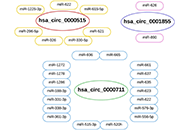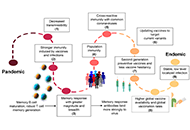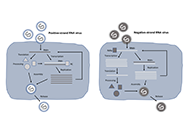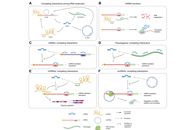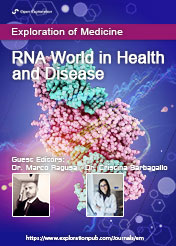
RNA World in Health and Disease
Guest Editors
Dr. Marco Ragusa E-Mail
Professor, Department of Biomedical and Biotechnological Sciences, Università degli Studi di Catania, Catania, Italy
Research Keywords: miRNAs, cancer, non-coding RNAs, incRNA, circRNA, neurobiology, computation biology
Dr. Cristina Barbagallo E-Mail
Department of Biomedical and Biotechnological Sciences, Università degli Studi di Catania, Catania, Italy
Research Keywords: microRNAs, non-coding RNAs, long non-coding RNAs, transcriptomic
About the Special lssue
For many years, proteins were considered the main determining factors for the functioning of cells and organisms, and their dysfunctions were considered as the primary cause of pathologies. This protein-centred view has been predominant in biology and biomedicine, but it was too simplistic to explain the complexity of the cell and the elusiveness of complex diseases. Today, it is well known that about 80% of our genome is dynamically and pervasively transcribed, mostly as non-protein-coding RNAs (ncRNAs). NcRNAs (e.g., miRNAs, lncRNAs, circRNAs) can bind DNA and proteins, interact with and regulate each other through various molecular mechanisms, generating a complex network of RNA-RNA competitive interactions that modulate the physiological functioning of canonical protein-coding pathways. NcRNAs constitute multiple control layers above classically known coding layers in cells by modulating chromatin architecture, gene transcription, RNA processing, stability, and translation. Accordingly, their molecular dysregulations are strongly involved in the onset and progression of many pathologies, including cancers and degenerative diseases. The discovery of the critical role of ncRNAs in the cell's physio-pathology has shed new light on understanding the molecular bases of complex diseases. Moreover, an impressive number of studies have shown that ncRNAs are secreted by cells into biological fluids (e.g., serum or plasma) as signals for other cells through a hormone-like signaling mechanism. The evidence that different pathological conditions specifically alter these RNA-based signals in the extracellular environment paves the way for exploiting ncRNA dosage in biological fluids for diagnostic or prognostic purposes.
This Special Issue of Exploration of Medicine will encompass new research articles and reviews on the role of cellular and extracellular ncRNAs in physio-pathological conditions and their potential applications, diagnostics, and therapy.
Keywords: miRNAs, lncRNAs, circRNAs, epigenetics, extracellular vesicles, cancers, degenerative diseases
Published Articles
